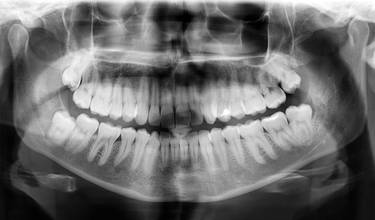Human papillomavirus, or HPV, is a virus which affects a large part of the world’s population and it is indeed common in the UK as well. Most people will be infected with HPV at some point in life – in children, it often causes plantar warts or warts on the hands, and in older patients it is often a sexually transmitted disease causing genital warts. Some are infected without experiencing any symptoms at all, because the immune system manages to fight the virus before it has time to settle. There are over 100 different types of HPV, and the diseases they cause vary. Some cause benign conditions like common warts and genital warts, but others might cause cancer.
HPV vaccine protects against certain types of HPV
In the UK, all girls aged 12 to 13 are offered an HPV vaccine which has been proven to protect against cervical cancer, the most frequent cancer type caused by HPV. It is only when the HPV infection becomes chronic, that is when the immune system fails to fight the virus, that cancer might develop, and fortunately, this only happens rarely.
The vaccine against cervical cancer protects against infections with HPV-16 and HPV-18, as these are responsible for roughly 70 % of all cervical cancers in England. As a bonus, the vaccine used in the UK protects against HPV-6 and HPV-11, which cause 90 % of all genital warts. Besides cervical cancer, HPV can also cause other types of cancer such as anal cancer, penile cancer, vaginal cancer and vulvar cancer. Not only may it cause certain types of cancer of the genital organs, but it is also associated with oral cancer and other head and neck cancers.
Does the HPV vaccine protect against more than cervical cancer?
Actually, HPV-16, which is strongly associated with cervical cancer, is also associated with oral cancer. As the vaccine among other things protects against HPV-16, it is a common perception that the vaccine will protect against oral cancer as well.
The FDA, The American Food and Drug Administration, which must approve medications before they can be marketed, has however only performed clinical studies which examine the vaccine’s ability to prevent cervical cancer. For that reason, the FDA has prohibited the manufacturers from mentioning other potential positive effects of the vaccine, for instance on the oral cavity.
Since the vaccine prevents the HPV-16 virus from infecting the body of a vaccinated patient, there is most likely a protective effect against other types of cancer as well. For this reason, many people argue that men should receive the vaccination as well – not only to achieve herd immunity against HPV and thus increased protection against cervical cancer faster – but to lower the risk of penile cancer, anal cancer and oral cancer as well.
If you have already been infected with HPV, the vaccine will not work for you, and for this reason, the vaccination is given at the age of 12. Even though it still hasn’t been scientifically proven that the HPV vaccine protects against other types of cancer besides cervical cancer, it is however very likely that it has this effect as well. As men develop oral cancer more frequently than women, and as symptoms often appear at a late stage, it is worth considering whether the vaccine should be offered to the entire young population in the UK.
Sources:
1. http://www.ssi.dk/service/sygdomsleksikon/h/human%20papilloma%20virus%20infektion.aspx
2. http://oralcancerfoundation.org/understanding/hpv/hpv-oral- cancer-facts/
3. https://www.cancer.dk/mundhulekraeft-tungekraeft/symptomer- mundkraeft/








